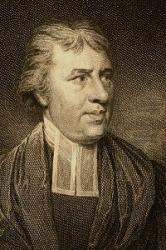Planning worship?
Check out our sister site, ZeteoSearch.org,
for 20+ additional resources related to your search.
- |
User Links
Search Results
I will arise, I will arise
Appears in 10 hymnals Used With Tune: [I will arise, I will arise]
I will arise, I will arise
[I will arise, I will arise and go to my Father]
Appears in 6 hymnals Composer and/or Arranger: Rev. R. Cecil Incipit: 11233 34532 6545 Used With Text: I Will Arise
[I will arise, I will arise and go to my Father]
I will arise, I will arise, and go to my Father
Hymnal: The Durham Mission Tune Book #44 (1888) Languages: English Tune Title: [I will arise, I will arise, and go to my Father]
I will arise, I will arise, and go to my Father
I Will Arise
Hymnal: Songs of Victory #184 (1890) First Line: I will arise, I will arise and go to my Father Languages: English Tune Title: [I will arise, I will arise and go to my Father]
I Will Arise
I will arise, I will arise and go to my Father
Hymnal: The American Vocalist #232 (1849) Tune Title: I WILL ARISE
I will arise, I will arise and go to my Father
R. Cecil

1748 - 1810 Person Name: Cecil Composer of "I WILL ARISE" in The American Vocalist Cecil, Richard, M.A., born in London, Nov. 8, 1748, and educated at Queen's Coll., Oxford. Ordained deacon in 1776, and priest in 1777. He became the Vicar of two churches near Lewes shortly after; chaplain of St. John's Chapel, Bedford Row, London, 1780; and Vicar of Chobham and Bisley, 1800. He died in 1810. His poem:—
Cease here longer to detain me. Desiring Heaven. In 9 stanzas of 4 lines, is supposed to be addressed by a dying infant to his mother. It was written for his wife on the death of a child “only one month old, being removed at daybreak, whose countenance at the time of departure was most heavenly." It was first published in Mrs. Cecil's Memoir of him, prefixed to his Remains, 1811, and is headed “Let me go, for the day breaketh." In the American hymn-books it is usually abbreviated, as in the Plymouth Collection, 1855, and others. [William T. Brooke]
--John Julian, Dictionary of Hymnology (1907)
R. Cecil
Edgar Pettman
1886 - 1943 Arranger of "[I will arise, I will arise]" in The Song Companion to the Scriptures
Edgar Pettman


 My Starred Hymns
My Starred Hymns

